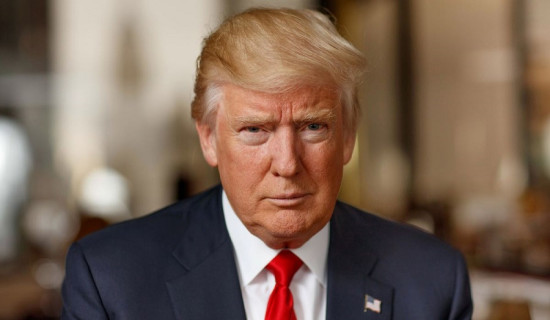- Tuesday, 29 April 2025
Budget Spending At Year End
Whenever a fiscal year comes to an end, discussions erupt on how the government is once again unable to properly spend its allocated budget. Concerns are shown particularly towards infrastructure and other development projects. Nepal’s status of a developing nation requires it to strive for a fast economic growth. Utilising the capital budget properly is an essential way to move on the path of development. But every year, very little percentage of the allocated budget is spent, that too at the end of the fiscal year.
When the budget is not spent within the fiscal year, there appears a situation of budget freeze. This hampers the process of development. And in the upcoming fiscal year, the amount is allocated for the same heading as in the past. So, just to prevent the budget freeze, authorities are found hurrying on spending some amount in the name of development.
This is why an already black-topped road gets an extra layering of asphalt. And potholes that cause inconveniences to pedestrians as well as drivers throughout the year, suddenly get covered when the fiscal year comes to a close. It is an irony to see how infrastructure development has taken place in the country over the years.
In the last fiscal year (2022-23), Nepal was able to spend about 80 per cent of its planned budget. In regard to capital expenditure, the government could utilise only 60 one per cent of the budget. This paints an annoying picture of the capital budget spending in the country.
It is necessary for a developing nation like ours to spend the capital budget prudently. The spending is made by the government on different infrastructure projects which include drinking water, electricity and roads. The government can also expend capital budget on social sectors like education and health. These development initiatives are crucial to boost production, improve people’s income and create job opportunities for many.
Therefore, it would not be wrong to call capital spending an indication of a country’s development and the welfare of its citizens. However, we have failed to fully utilise the budget to enjoy the advantage it can bring. And the case is the same even after the introduction of federalism in Nepal.
Many people, mostly the young population, are heading abroad in search of better opportunities for a secure future. Had there been proper plans and programmes and effective utilisation of public funds to create a more favourable situation for such people within the country, they would not have opted for migration.
The spending made at the end of the fiscal year is not based on a rational decision-making process. The hurried spending without any appropriate plan can create only substandard infrastructures. Such infrastructures are not beneficial for anyone and it is a waste of time, money and energy. As long as the government and the concerned authorities do not seriously tackle the issue of proper budget spending, we will continue to remain in the vicious cycle of poverty and underdevelopment. Timely implementation of programmes and activities, with required planning, should be stressed upon.
While the roads getting constructed or the electricity line managed is a common sight to behold, the last moment action does not justify the so-called idea of development.
We still are way behind when it comes to changing our mentality and bringing about real changes in our society and the country.

















